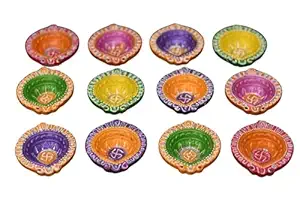परिचय: दशहरा, जिसे विजयादशमी के नाम से भी जाना जाता है, हिंदू धर्म का एक प्रमुख त्योहार है जिसे पूरे भारत और कुछ अन्य देशों में बड़े धूमधाम से मनाया जाता है। यह अच्छाई की बुराई पर जीत का प्रतीक है और हिंदू कैलेंडर के अनुसार आश्विन महीने (सितंबर-अक्टूबर) के दसवें दिन मनाया जाता है। इस त्योहार को विभिन्न क्षेत्रों में अलग-अलग रूपों में मनाया जाता है, जो धर्म की जीत का प्रतीक है।
ऐतिहासिक महत्व:
- भगवान राम की विजय: दशहरा मुख्य रूप से भगवान राम की राक्षस राजा रावण पर विजय से जुड़ा हुआ है। रामायण के अनुसार, भगवान राम ने अपने समर्पित भाई लक्ष्मण, हनुमान और वानरों की सेना के साथ रावण को हराया, जिसने उनकी पत्नी सीता का अपहरण कर लिया था। दशहरे के दिन रावण के पुतलों का दहन बुराई के विनाश और धर्म की स्थापना का प्रतीक है।
- देवी दुर्गा की विजय: भारत के कुछ हिस्सों, विशेषकर पश्चिम बंगाल में, दशहरा नवरात्रि के समापन के रूप में मनाया जाता है, जहाँ इसे दुर्गा पूजा के रूप में मनाया जाता है। यह देवी दुर्गा की महिषासुर राक्षस पर विजय का प्रतीक है, जो नौ दिनों की घोर लड़ाई के बाद हुआ था।
सांस्कृतिक महत्व:
- रामलीला का प्रदर्शन: उत्तर भारत के कई हिस्सों में, दशहरे से पहले भगवान राम की जीवन यात्रा, जिसे रामलीला के नाम से जाना जाता है, का मंचन किया जाता है। इन प्रस्तुतियों में रामायण के विभिन्न प्रसंगों का प्रदर्शन होता है और दशहरे के दिन रावण, मेघनाथ और कुंभकर्ण के बड़े पुतलों का दहन होता है।
- दुर्गा पूजा: पश्चिम बंगाल में, दशहरा दुर्गा पूजा के अंतिम दिन के रूप में मनाया जाता है, जहाँ देवी दुर्गा की सुंदर मूर्तियों का नदी या अन्य जल निकायों में विसर्जन किया जाता है, जो देवी के स्वर्गीय निवास में लौटने का प्रतीक है।
- मैसूर दशहरा: कर्नाटक में, यह त्योहार मैसूर दशहरा के रूप में मनाया जाता है, जिसमें भव्य जुलूस शामिल होते हैं, जिनमें हाथियों, घोड़ों और सांस्कृतिक प्रदर्शनों की शाही परेड होती है। मैसूर पैलेस को रोशनी से सजाया जाता है और पूरे शहर में विभिन्न सांस्कृतिक कार्यक्रम आयोजित किए जाते हैं।
रिवाज और उत्सव:
- पुतला दहन: दशहरे का सबसे प्रमुख अनुष्ठान रावण, मेघनाथ और कुंभकर्ण के पुतलों का दहन है, जो बुराई के विनाश का प्रतीक है। यह अक्सर आतिशबाजी, संगीत और हर्षोल्लास के साथ मनाया जाता है।
- जुलूस और मेले: भारत के कई हिस्सों में भव्य जुलूस और मेले आयोजित किए जाते हैं, जहाँ लोग संगीत, नृत्य और पारंपरिक भोजन के साथ जश्न मनाने के लिए इकट्ठा होते हैं। सड़कों को रोशनी से सजाया जाता है और विभिन्न सांस्कृतिक कार्यक्रम आयोजित किए जाते हैं।
- औजारों और हथियारों की पूजा: भारत के कुछ हिस्सों, विशेषकर कर्नाटक और तमिलनाडु में, दशहरा के दिन औजारों, हथियारों और वाहनों की पूजा की जाती है, जिसे आयुध पूजा के नाम से जाना जाता है, ताकि सफलता और सुरक्षा का आशीर्वाद प्राप्त हो।
आधुनिक समय में दशहरा: आज के समय में दशहरा केवल एक धार्मिक त्योहार ही नहीं, बल्कि एक सांस्कृतिक और सामाजिक आयोजन भी बन गया है, जो समुदायों को एक साथ लाता है। इसे बड़े उत्साह के साथ मनाया जाता है, जिसमें विभिन्न पृष्ठभूमियों के लोग इस उत्सव में भाग लेते हैं। पारंपरिक अनुष्ठानों के अलावा, आधुनिक समय का दशहरा सांस्कृतिक प्रदर्शनों, चैरिटी आयोजनों और सामुदायिक सम्मेलनों को भी शामिल करता है, जिससे यह एकता और सद्भाव का त्योहार बन गया है।
Cultural Celebrations
Regional Variations
Dussehra is celebrated with unique customs across India reflecting diverse regional traditions.
Folk Songs and Dances
Traditional songs and dances are performed to enhance the cultural spirit of Dussehra.
Special Rituals
Communities observe specific rituals and ceremonies to honor the victory of good over evil.
Community Gatherings
Local events and fairs bring people together to celebrate Dussehra collectively.
Global Celebrations
Dussehra is celebrated worldwide by Indian communities spreading awareness of Indian culture and tradition.
Introduction
Overview of Dussehra
Dussehra is a major Hindu festival celebrating the victory of good over evil marking Lord Rama's triumph over Ravana.
Significance of Dussehra
Dussehra signifies righteousness moral victory and the importance of virtue in human life.
Historical Background
Dussehra has been celebrated for centuries with rituals dramatic enactments and prayers to honor divine triumph.
Importance in Hindu Tradition
Dussehra is observed to remind devotees of the power of truth dharma and devotion.
Family and Community Bonding
Dussehra strengthens family and community ties through collective celebrations prayers and cultural events.
Festive Rituals
Ramlila Performances
Dussehra is celebrated with Ramlila performances depicting Lord Rama's battle with Ravana and the victory of good.
Burning of Ravana Effigies
Effigies of Ravana are burned to symbolize the destruction of evil and restoration of moral order.
Puja and Prayers
Devotees perform puja to seek blessings for courage wisdom and the removal of obstacles in life.
Decorations and Festive Lighting
Homes and public spaces are decorated with lights flowers and symbols of divinity to celebrate the festival.
Sharing Sweets and Gifts
People exchange sweets and gifts to strengthen bonds and share joy during Dussehra.
Spiritual Significance
Victory of Good over Evil
Dussehra teaches the importance of truth righteousness and faith in overcoming challenges.
Devotion to Lord Rama
Devotees honor Lord Rama through prayers and rituals seeking guidance and divine blessings.
Moral Lessons
Dussehra emphasizes ethical living self-discipline and the power of good deeds.
Symbolism of Fire and Effigies
The burning of Ravana effigies symbolizes the eradication of negativity and evil tendencies.
Community Harmony
Dussehra fosters unity and togetherness among communities through joint celebrations and cultural events.
Preparation and Planning
Cleaning and Home Preparation
Devotees clean homes and surroundings to welcome positivity and create a sacred environment.
Shopping and Gifts
Preparing gifts sweets and decorative items ensures joyful celebrations for family and friends.
Organizing Ramlila Events
Community groups organize Ramlila performances to educate and entertain participants.
Arranging Puja Materials
Flowers lamps and offerings are organized in advance to perform rituals smoothly.
Safety Precautions
Precautions during fireworks effigy burning and public gatherings ensure a safe festival celebration.
Dussehra is celebrated with unique customs across India reflecting diverse regional traditions.
Traditional songs and dances are performed to enhance the cultural spirit of Dussehra.
Communities observe specific rituals and ceremonies to honor the victory of good over evil.
Local events and fairs bring people together to celebrate Dussehra collectively.
Dussehra is celebrated worldwide by Indian communities spreading awareness of Indian culture and tradition.
Dussehra is a major Hindu festival celebrating the victory of good over evil marking Lord Rama's triumph over Ravana.
Dussehra signifies righteousness moral victory and the importance of virtue in human life.
Dussehra has been celebrated for centuries with rituals dramatic enactments and prayers to honor divine triumph.
Dussehra is observed to remind devotees of the power of truth dharma and devotion.
Dussehra strengthens family and community ties through collective celebrations prayers and cultural events.
Dussehra is celebrated with Ramlila performances depicting Lord Rama's battle with Ravana and the victory of good.
Effigies of Ravana are burned to symbolize the destruction of evil and restoration of moral order.
Devotees perform puja to seek blessings for courage wisdom and the removal of obstacles in life.
Homes and public spaces are decorated with lights flowers and symbols of divinity to celebrate the festival.
People exchange sweets and gifts to strengthen bonds and share joy during Dussehra.
Dussehra teaches the importance of truth righteousness and faith in overcoming challenges.
Devotees honor Lord Rama through prayers and rituals seeking guidance and divine blessings.
Dussehra emphasizes ethical living self-discipline and the power of good deeds.
The burning of Ravana effigies symbolizes the eradication of negativity and evil tendencies.
Dussehra fosters unity and togetherness among communities through joint celebrations and cultural events.
Devotees clean homes and surroundings to welcome positivity and create a sacred environment.
Preparing gifts sweets and decorative items ensures joyful celebrations for family and friends.
Community groups organize Ramlila performances to educate and entertain participants.
Flowers lamps and offerings are organized in advance to perform rituals smoothly.
Precautions during fireworks effigy burning and public gatherings ensure a safe festival celebration.

Stories from the Ramayana and the Mahabharata (Set of 2 Books) (Illustrated) (Hindi) - Story Books for kids - Bedtime Stories - 4 years to 10 Years old - Hindi Stories for Children - Read Aloud to Infants, Toddlers
Buy Now
निर्मलया प्रीमियम ऑर्गेनिक हवन कप
Buy Now